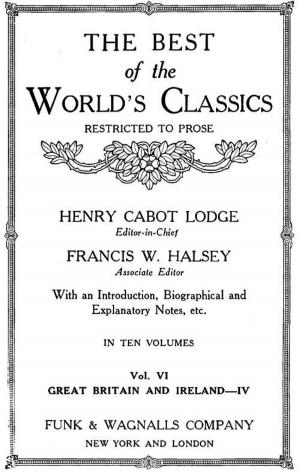White-Jacket; Or The World In A Man-Of-War (Mobi Classics)
Fiction & Literature, Classics, Action Suspense, Historical| Author: | Herman Melville | ISBN: | 9781605013374 |
| Publisher: | MobileReference | Publication: | January 1, 2010 |
| Imprint: | MobileReference | Language: | English |
| Author: | Herman Melville |
| ISBN: | 9781605013374 |
| Publisher: | MobileReference |
| Publication: | January 1, 2010 |
| Imprint: | MobileReference |
| Language: | English |
White-Jacket, or The World in a Man-of-War, usually referred to as White-Jacket, is an 1850 novel by Herman Melville first published in England on January 23 by Richard Bentley and in the U.S. on March 21 by Harper & Brothers. Based on Melville's experiences as a common seaman aboard the frigate USS United States from 1843 to 1844 and stories that other sailors told him, the novel is severely critical of virtually every aspect of American naval life and thus qualifies as Melville's most politically strident work. At the time, though, the one thing that journalists and politicians focused on in the novel was its graphic descriptions of flogging and the horrors caused by its arbitrary use; in fact, because Harper & Bros. made sure the book got into the hands of every member of Congress, White-Jacket was instrumental in abolishing flogging in the U.S. Navy forever. Melville scholars also acknowledge the huge number of parallels between White-Jacket and Billy Budd and view the former as a rich source for possible interpretations of the latter.The mixture of journalism, history, and fiction; the presentation of a sequence of striking characters; the metaphor of a sailing ship as the world in miniature all of these prefigure his next novel, Moby-Dick. Excerpted from Wikipedia, the free encyclopedia.
White-Jacket, or The World in a Man-of-War, usually referred to as White-Jacket, is an 1850 novel by Herman Melville first published in England on January 23 by Richard Bentley and in the U.S. on March 21 by Harper & Brothers. Based on Melville's experiences as a common seaman aboard the frigate USS United States from 1843 to 1844 and stories that other sailors told him, the novel is severely critical of virtually every aspect of American naval life and thus qualifies as Melville's most politically strident work. At the time, though, the one thing that journalists and politicians focused on in the novel was its graphic descriptions of flogging and the horrors caused by its arbitrary use; in fact, because Harper & Bros. made sure the book got into the hands of every member of Congress, White-Jacket was instrumental in abolishing flogging in the U.S. Navy forever. Melville scholars also acknowledge the huge number of parallels between White-Jacket and Billy Budd and view the former as a rich source for possible interpretations of the latter.The mixture of journalism, history, and fiction; the presentation of a sequence of striking characters; the metaphor of a sailing ship as the world in miniature all of these prefigure his next novel, Moby-Dick. Excerpted from Wikipedia, the free encyclopedia.















